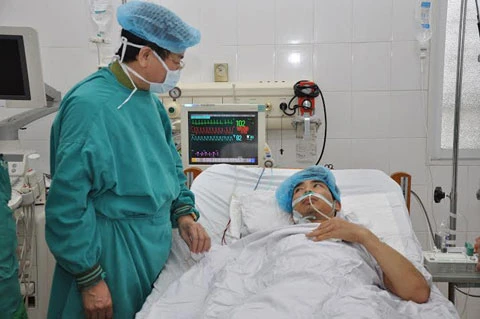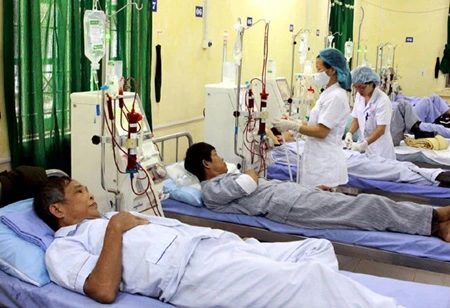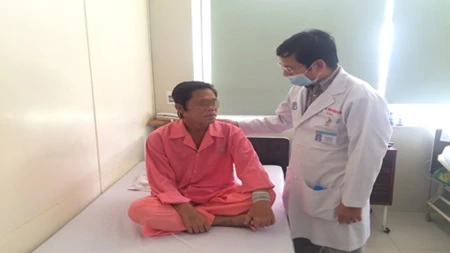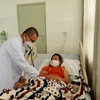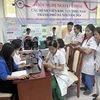 Organs harvested from a brain-dead patient have saved the lives of four people. (Source: thanhnien.com)
Organs harvested from a brain-dead patient have saved the lives of four people. (Source: thanhnien.com) The health of two patients in Viet Duc Hospital, who received liver and heart transplants from a brain-dead patient in HCM City's Cho Ray Hospital on September 4, is improving.
Doctors at Viet Duc Hospital said the patients - both male, aged 60 and 40 and suffering from liver cancer and dilated cardiomyopathy - start taking liquid food on September 7 afternoon.
Dr Du Thi Ngoc Thu, Head of the Cho Ray Hospital Organ Transplantation Unit, said as soon as the relatives of the donor, who was declared brain dead after an accident, agreed to donate his organs, the hospital informed the national organ transplant unit.
The donated organs were the liver, heart and the two kidneys, which were used to save the lives of two patients in Hanoi and two in HCM City's Cho Ray Hospital, Thu said.
After receiving the information on September 4, Viet Duc Hospital surgeons travelled 1,700 km from Hanoi to HCM City to collect the donated organs and returned the same day, as the transplant operations had to be conducted within eight to 10 hours of the organs being harvested.
The heart transplant surgery lasted six and a half hours, while the liver transplant took seven and a half hours.
The Cho Ray Hospital Organ Transplantation Unit, operational since October 2014, has helped to save 20 patients after five brain-dead patients donated their organs.
The national unit based in Viet Duc Hospital was established in 2013. It connects donors of organs with those waiting for organ transplants. There are 13 hospitals across the country that are qualified to carry out organ transplants.-VNA
